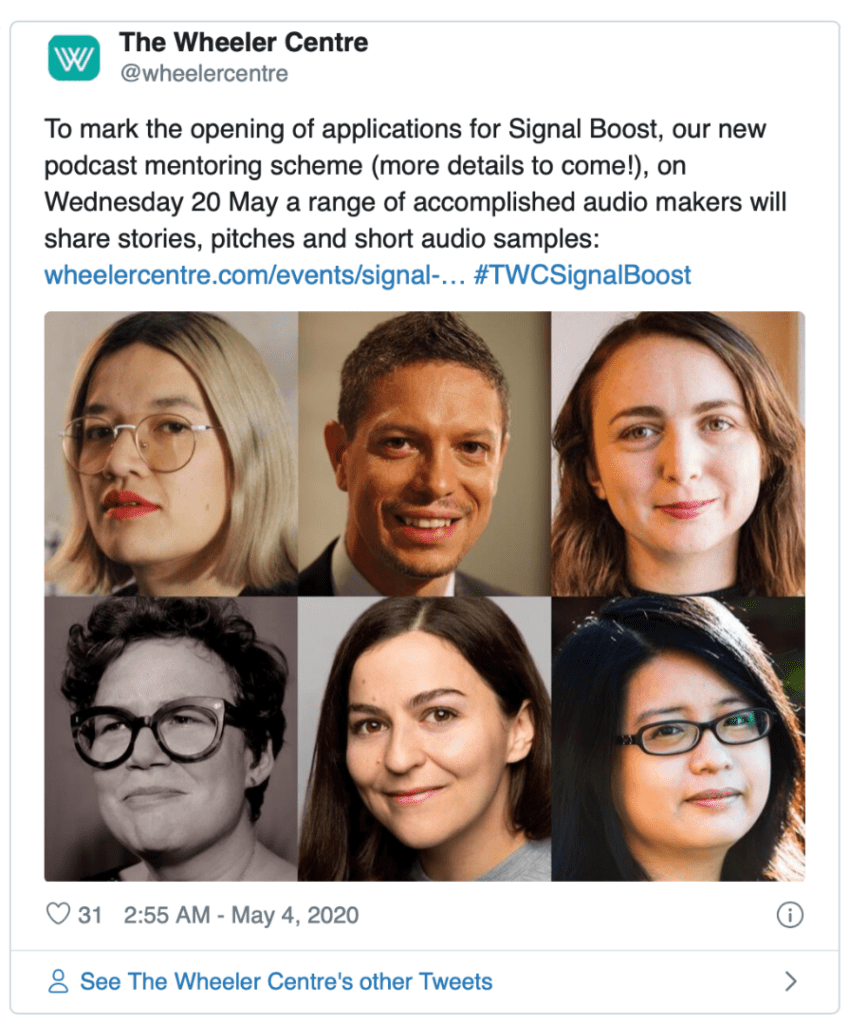
SPONSORED
BY



PodMov Daily: Wednesday, May 6
Episode 199: Your Midweek Update

Wednesday Guest Feature: 5 Core Tips for Narrative Podcasts
This Wednesday’s guest feature is from Cherie Louise Turner, host and producer of the narrative podcast Strides Forward. After a long writing and editing career, Turner is creating inspirational audio stories about women and long-distance running. Here, she shares tried-and-true methods to help return any narrator to clarity.
“Creating narrative podcasts is at once immensely rewarding and immensely difficult,” Turner states. “You get to weave so many elements together […] But with increased elements come increased opportunities to muddy the storytelling waters: It’s easy to get lost in the weeds. And if you end up in the weeds, so will your listener.”
These suggestions will help podcasters of any genre turn interview tape, scripted narration, ambient sound, music, and more into cohesive, compelling episodes. From choosing a structure to gathering meaningful feedback, storytelling tasks can be slippery. Turner’s expertly run trail offers pressure-free encouragement.
Google Podcasts Manager: Now Delivering Data on Behavior and Devices
With its new Podcasts Manager tool, Google Podcasts will be providing creators with more data about their listeners. Ashley Carman of The Verge reckons that, by adding “a feature that podcasters have been pushing to access,” Google will be “bringing it up to par with Apple Podcasts and Spotify.”
According to Google, the new feature allows users to “see when [their] listeners tune in — and when they drop off,” information that can help inform ad sales and audience preferences. Device details (“how your audience listens across devices like smart speakers, smartphones and desktops”) is included as well.
Podcasters have to verify ownership of their RSS feed to access the newly available stats. Carman points out that listener demographic data is “notably missing from these new analytics.” Countering one of Spotify’s “primary selling points,” Google, for now, sides with Apple on protecting user privacy.


Happy Wednesday, readers, and here's to innovation and inspiration from The Wheeler Centre, Melbourne, Australia. Applications will open for Signal Boost 2020, the Centre’s podcast mentorship and development program, on May 20.
That day, join an outstanding group of audio producers for a special online broadcast to “toast the open-ended power of audio storytelling and celebrate the act of creating great ideas from small beginnings.”
Here's what else is going on:
- Building blocks: How can a podcaster structure engaging episodes while preserving a distinct style? A step-by-step guide from Buzzsprout explains how “a little order and predictability” can help ensure “each one is as effective, entertaining, and profitable as it can be.”
- Youth correspondent: Gwen Rose, a 7-year-old podcaster from Caversham Heights, England, has recorded 5 episodes of her show Gwen Gets to Work. Inspired by recent virtual chats, the young creator interviews adults, including a reporter, a dentist, and an artist, about their jobs.
- Passing glance: Show descriptions are “an invaluable opportunity to get [listeners] interested and excited enough to press play.” In a Spotify for Podcasters post, Wil Williams explains how series like Song Salad and The Two Princes intrigue with brief text previews.
- Enchanted hour: ‘Harry Potter At Home,' a collection of free offerings in response to lockdown, includes weekly chapter recordings available on Spotify. Daniel Radcliffe narrates the series' iconic first chapter, “The Boy Who Lived,” from Harry Potter and the Sorcerer’s Stone.




Join the Movement